News
-
 Life
LifeDogs carry a surprising variety of flu viruses
Dogs in China carry a wider variety of flu viruses than previously thought, and may be capable of passing the flu to humans.
-
 Health & Medicine
Health & MedicineWhat we know — and don’t know — about a new migraine drug
A migraine prevention drug was recently approved by the U.S. Food and Drug Administration. But some questions about the therapy remain.
-
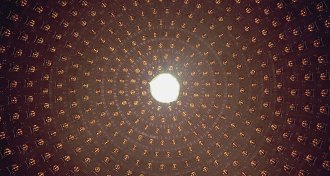 Particle Physics
Particle PhysicsMysterious neutrino surplus hints at the existence of new particles
Neutrinos show up in greater numbers than expected in an experiment, possibly bolstering the idea of a fourth type of the particle.
-
 Neuroscience
NeuroscienceHere’s why scientists are questioning whether ‘sonic attacks’ are real
Sonic attacks would be hard to pull off and a terrible way of incapacitating diplomats, experts say.
-
 Planetary Science
Planetary ScienceNever-before-seen dunes on Pluto spotted in New Horizons images
Images from the New Horizons spacecraft reveal dunes on Pluto — but the sand-sized grains must have had an unusual boost to get moving.
-
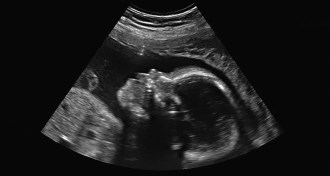 Genetics
GeneticsGuidelines call for limits to whole genome testing for fetuses
Powerful tests offer unprecedented detail about fetal genomes. But whole-genome tests aren’t ready for widespread use yet, doctors caution.
-
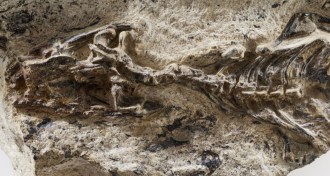 Paleontology
PaleontologyOldest known lizard fossil pushes group’s origins back 75 million years
CT scan reveals hidden identity of an unusual lizard fossil found years ago in the Italian Alps.
By Susan Milius -
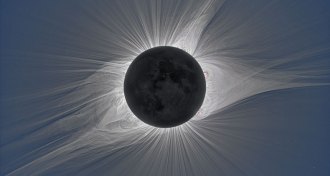 Astronomy
AstronomyAstronomers scrutinized last year’s eclipse. Here’s what they’ve learned
Astronomers observed the 2017 total solar eclipse from the ground and the air, and found some never-before-seen features of the sun’s atmosphere.
-
 Health & Medicine
Health & MedicineHere’s what we know about the deadly Nipah virus
The deadly and rare Nipah virus has killed at least 11 people in southern India, causing concern among epidemiologists.
By Maanvi Singh -
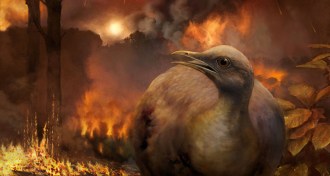 Paleontology
PaleontologyHow birds may have escaped the dino-killing asteroid impact
A tree-loving lifestyle became a risk for ancient birds in a world-changing catastrophe.
By Susan Milius -
 Paleontology
PaleontologyThe Chicxulub asteroid impact might have set off 100,000 years of global warming
About 66 million years ago, the Chicxulub asteroid impact set off 100,000 years of global warming, an analysis of oxygen in fish fossils suggests.
-
 Astronomy
AstronomyPlasma rain in the sun’s atmosphere falls in surprising places
Scientists found rain in the sun’s corona where they didn’t expect it, which could help solve the mystery of why the corona is so hot.